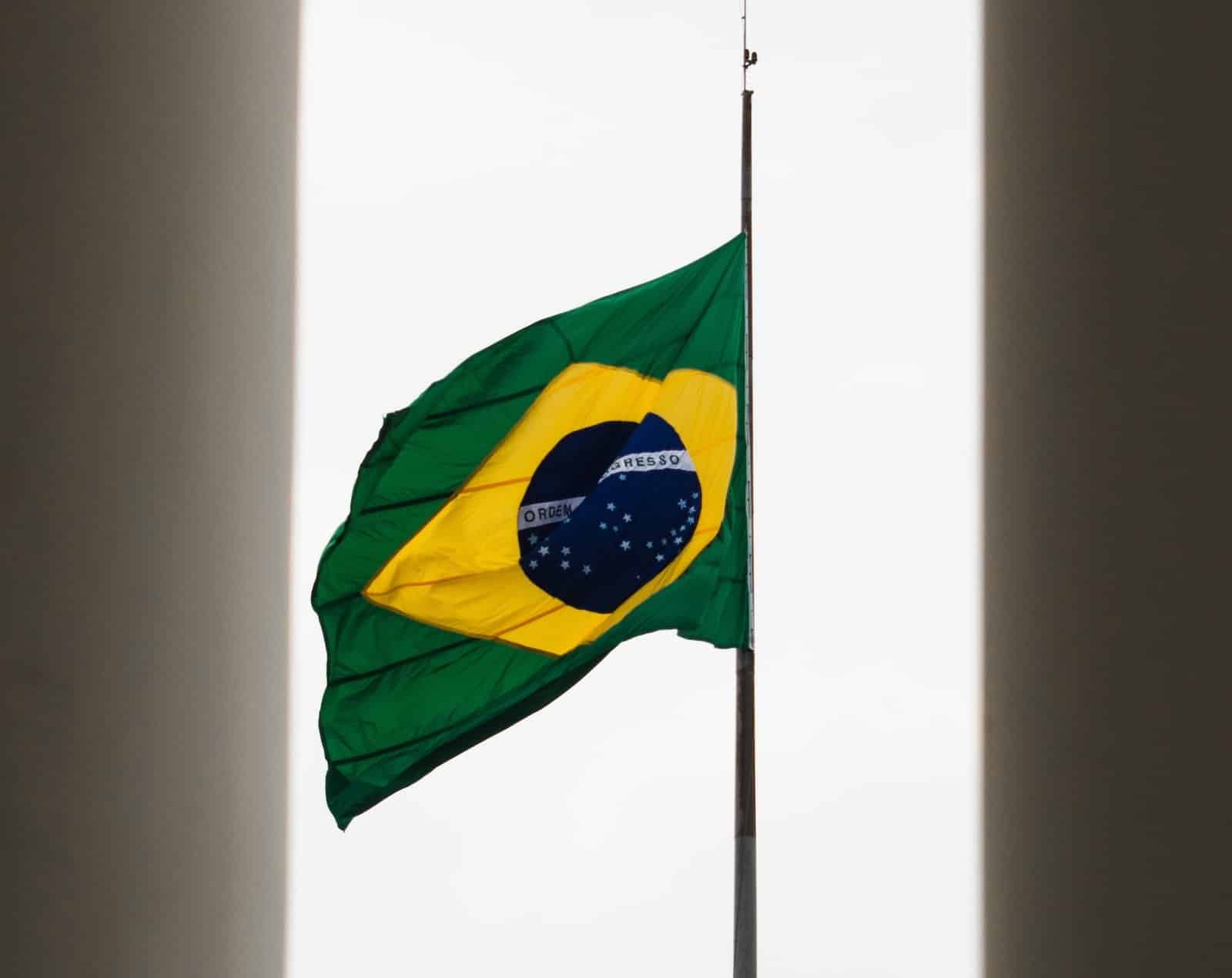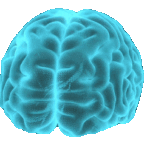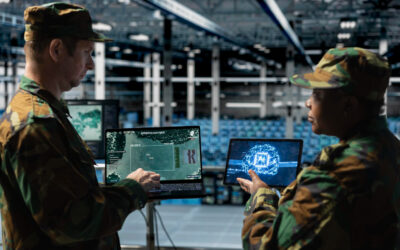Bill on Artificial Intelligence Regulation of the Chamber of Deputies of the Federative Republic of Brazil.
For most members of the Chamber of Deputies of the Federative Republic of Brazil, the artificial intelligence framework will encourage technological development. It is important to highlight that the country is the first in Latin America to address this issue. The Bill has received partial approval, awaiting treatment and approval by the Senate. The initiative was presented under the administration of President Jair Mesias Bolsonaro. Subsequently, as we must report, progress has been made in the presentation of projects that contribute to an improved complement of what has already been discussed, even in the Federal Senate.
For Deputies, the artificial intelligence framework will encourage technological development.
The majority of Deputies assessed that the definition of principles for the application of Artificial Intelligence in Brazil, a topic of Bill 21/20, will encourage the country’s technological development. The text was approved in the plenary of the Chamber of Deputies and, following constitutional procedures, will be forwarded to the Senate for consideration.
The rapporteur of the Bill, Deputy Luisa Canziani (PTB from the State of Paraná), stated that she limited the text and the guidelines to be used by the public authorities when regulating the application of artificial intelligence, in order to avoid creating rules that would discourage its adoption. She reminded that some states are already creating their own rules, which is why it is necessary to establish national legislation on the matter. “We took the best from international experiences in regulating artificial intelligence when drafting this text. If we do not approve this matter, we will inhibit investments related to innovation and intelligence.”
The author of the proposal, Deputy Eduardo Bismarck (PDT, from the State of Ceará), stated that the approval of a legal framework for the sector signals to the world that Brazil is paying attention to innovation and artificial intelligence. “Artificial intelligence is already part of our reality, and Brazil will make other laws in the future. The time is now, and it is time to outline principles: rights, duties, and responsibilities.”
The proposal was criticized by Deputy Leo de Brito (PT- State of Acre), who requested more specific rules. After including issues such as state responsibility in the text, an agreement was made in favor of the text. According to Deputy de Brito, “we were addressed on some fundamental issues, so we withdrew our opposition.”
For Deputy Paulo Ganime (Novo- State of Rio de Janeiro), the project is “just right.” “In this case, the framework is intended to promote technological development, the evolution of artificial intelligence in Brazil, the generation of employment and work, and greater legal security for a sector that is still in the process of development and where Brazil can become a pioneer.”
Deputy Eduardo Cury (PSDB- State of São Paulo) emphasized that the proposal is the starting point for the regulation of the issue. “The project is correctly adjusted, with the beginning of regulation that does not go into so much detail as to inhibit innovation.”
Final Draft of the Bill Presented:
The final draft of the Bill approved by the Chamber of Deputies is presented below, in its original language, to more faithfully respect its content.
final draft
bill no. 21-A of 2020
Establishes the foundations, principles, and guidelines for the development and application of artificial intelligence in Brazil; and other provisions.
THE NATIONAL CONGRESS decrees:
Art. 1º This Law establishes the foundations and principles for the development and application of artificial intelligence in Brazil, as well as guidelines for promoting and acting in this area by the public authorities.
Art. 2º For the purposes of this Law, an artificial intelligence system is considered to be a system based on a computational process that, from a set of objectives defined by humans, can, through the processing of data and information, learn to perceive and interpret the external environment, as well as interact with it, making predictions, recommendations, classifications, or decisions, and that uses, without being limited to, techniques such as:
I – Machine learning systems, including supervised, unsupervised, and reinforcement learning;
II – Systems based on knowledge or logic;
III – Statistical approaches, Bayesian inference, research, and optimization methods.
Sole paragraph. This Law does not apply to automation processes exclusively guided by predefined programming parameters that do not include the system’s ability to learn to perceive and interpret the external environment, as well as interact with it, based on actions and information received.
Art. 3º The application of artificial intelligence in Brazil aims at scientific and technological development, as well as:
Continuation of the approved Bill drafting:
Art. 3º (continuation):
The application of artificial intelligence in Brazil aims to:
I – Promote sustainable and inclusive economic development and the well-being of society;
II – Increase Brazilian competitiveness and productivity;
III – The competitive integration of Brazil into global value chains;
IV – Improvement in the provision of public services and the implementation of public policies;
V – Promotion of research and development to stimulate innovation in productive sectors;
VI – Protection and preservation of the environment.
Art. 4º:
The development and application of artificial intelligence in Brazil are based on the following principles:
I – Scientific, technological development, and innovation;
II – Free initiative and free competition;
III – Respect for ethics, human rights, and democratic values;
IV – Free expression of thought and free expression of intellectual, artistic, scientific, and communication activity;
V – Non-discrimination, plurality, respect for regional diversity, inclusion, and respect for the fundamental rights and guarantees of citizens;
VI – Recognition of its digital, transversal, and dynamic nature;
VII – Encouragement of self-regulation through the adoption of codes of conduct and good practice guides, in accordance with the principles established in Article 5 of this Law and with global best practices;
VIII – Security, privacy, and protection of personal data;
IX – Information security;
X – Access to information;
XI – National defense, state security, and national sovereignty;
XII – Freedom in business models, as long as it does not conflict with the provisions of this Law;
XIII – Preservation of the stability, security, resilience, and functionality of artificial intelligence systems, through the adoption of technical measures compatible with international standards and promoting best practices;
XIV – Protection of free competition and against abusive market practices, according to Law No. 12,529 of November 30, 2011; and
XV – Harmonization with Laws No. 13,709 of August 14, 2018 (General Data Protection Law), 12,965 of April 23, 2014, 12,529 of November 30, 2011, 8,078 of September 11, 1990 (Consumer Protection Code), and 12,527 of November 18, 2011.
Sole paragraph: The codes of conduct and good practice guides mentioned in item VII of the head of this article may serve as indicative elements of compliance.
Art. 5º:
The principles for the development and application of artificial intelligence in Brazil are as follows:
I – Beneficial purpose: seeking beneficial outcomes for humanity through artificial intelligence systems;
II – Human-centeredness: respect for human dignity, privacy, personal data protection, and fundamental rights when the system deals with matters related to human beings;
III – Non-discrimination: mitigation of the possibility of using systems for discriminatory, unlawful, or abusive purposes;
IV – Pursuit of neutrality: recommending that the agents involved in the development and operation of artificial intelligence systems seek to identify and mitigate biases contrary to current legislation;
V – Transparency: the right of individuals to be clearly, accessibly, and accurately informed about the use of artificial intelligence solutions, unless otherwise provided by law and respecting trade and industrial secrets, in the following cases:
a) When interacting directly with artificial intelligence systems, such as in the case of chatbots for personalized online service;
b) About the identity of the natural person operating the system autonomously, or the legal entity responsible for the operation of the artificial intelligence system;
c) About the general criteria guiding the operation of the artificial intelligence system, respecting trade and industrial secrets when there is a significant risk to fundamental rights.
VI – Security and prevention: using technical, organizational, and administrative measures compatible with best practices, international standards, and economic feasibility, to allow for the management and mitigation of risks arising from the operation of artificial intelligence systems throughout their lifecycle and continuous operation;
VII – Responsible innovation: ensuring the adoption of this Law’s provisions by the agents operating in the development and operation of artificial intelligence systems, documenting their internal processes, and assuming responsibility for the outcomes of such systems;
VIII – Data availability: no violation of copyright in the use of data, databases, and texts protected for training artificial intelligence systems, as long as it does not affect the normal exploitation of the work by its owner.
Art. 6º:
The public authorities, when regulating the application of artificial intelligence, must observe the following guidelines:
I – Subsidiary intervention: specific rules should only be developed when absolutely necessary to ensure compliance with current legislation;
II – Sectoral action: the public authorities’ actions should be carried out through the competent body or entity, considering the context and regulatory framework of each sector;
III – Risk-based management: the development and use of artificial intelligence systems must consider concrete risks. Definitions on the need for regulation and the level of intervention should be proportional to the concrete risks presented by each system and the probability of these occurring, always in comparison with:
a) The social and economic benefits the artificial intelligence system offers;
b) The risks presented by similar systems that do not involve artificial intelligence;
IV – Social and interdisciplinary participation: the adoption of rules affecting the development and operation of artificial intelligence systems will be evidence-based and preceded by public consultation, preferably online, with broad prior disclosure;
V – Regulatory impact analysis: before adopting rules affecting the development and operation of artificial intelligence systems, a regulatory impact analysis should be conducted, according to Decree No. 10,411 of June 30, 2020, and Law No. 13,874 of September 20, 2019;
VI – Responsibility: the rules regarding the responsibility of the agents operating in the development and operation of artificial intelligence systems must be based on subjective responsibility and consider the effective participation of the agents, specific harms to be avoided or remedied, and how these agents can demonstrate their compliance with the applicable standards.
§ 1º: In the risk-based management mentioned in item III, in cases of low risk, responsible innovation will be encouraged through the use of flexible regulatory techniques.
§ 2º: In the risk-based management mentioned in item III, when high risk is identified, the public administration may, within its competence, request information on the security and prevention measures listed in item VI of Art. 5 and their respective safeguards, respecting the transparency limits established by this Law.
§ 3º: When the use of the artificial intelligence system involves consumer relations, the agent will be responsible for repairing the damages caused to consumers, within the limit of their effective participation in the damage, according to Law No. 8,078 of September 11, 1990 (Consumer Protection Code).
§ 4º: Legal entities under public and private law providing public services will be responsible for damages caused by their agents in that capacity, with the right of recovery against the responsible party in cases of fraud or negligence.
Art. 7º
The guidelines for the actions of the Union, the States, the Federal District, and the Municipalities regarding the use and promotion of artificial intelligence systems in Brazil are as follows:
I – Promotion of trust in artificial intelligence technologies, through the dissemination of information and knowledge about their ethical and responsible uses;
II – Encouragement of investments in artificial intelligence research and development;
III – Promotion of the technological interoperability of artificial intelligence systems used by the public administration, in order to allow information exchange and streamline procedures;
IV – Encourage the development and adoption of artificial intelligence systems in the public and private sectors;
V – Stimulate the training and preparation of individuals for the restructuring of the labor market;
VI – Promote innovative pedagogical practices, with a multidisciplinary perspective and an emphasis on the importance of redefining teacher training processes to address the challenges derived from the insertion of artificial intelligence as a pedagogical tool in the classroom;
VII – Stimulate the adoption of regulatory instruments that foster innovation, such as regulatory sandbox environments, regulatory impact analysis, and sectoral self-regulation;
VIII – Encourage the creation of mechanisms for transparent and collaborative governance, with the participation of public authorities, the business sector, civil society, and the scientific community;
IX – Promotion of international cooperation, by encouraging the exchange of knowledge about artificial intelligence systems and the negotiation of treaties, agreements, and global technical standards that facilitate the interoperability between systems and the harmonization of legislation on this subject.
Sole paragraph: For the purposes of this article, the federal public administration will promote strategic management and guidance on the transparent and ethical use of artificial intelligence systems in the public sector, in accordance with strategic public policies for the sector.
Art. 8º
The guidelines established in Articles 6 and 7 of this Law will be applied according to the regulations of the federal Executive Power, through sectoral bodies and entities with technical competence in the matter, which must:
I – Monitor the risk management of artificial intelligence systems, in the specific case, evaluating the risks of their application and the mitigation measures within their area of competence;
II – Establish rights, duties, and responsibilities;
III – Recognize self-regulation institutions.
Art. 9º
For the purposes of this Law, artificial intelligence systems are technological representations derived from the field of computer science and computing, and it is exclusively the responsibility of the Union to legislate and regulate the matter in order to promote legal uniformity throughout the national territory, in accordance with item IV of the caput of Art. 22 of the Federal Constitution.
Art. 10
This Law comes into force 90 (ninety) days after its official publication.
Session Room, on September 29, 2021.
Deputy LUISA CANZIANI
Rapporteur
Sources
Analysis team of the Future Laboratory / Information System of the Chamber of Deputies of the Federative Republic of Brazil. With the collaboration of the Chamber of News Agency.
Translation in the central elements, translation team of the Future Laboratory.






Es imperioso informarse para comprender y aprovechar el futuro.